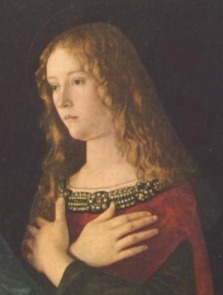Reading : Psalm 23; Psalm 139 verses 8 – 10
“Familiarity breeds contempt” – it’s true, as many of us know to our cost. Familiarity can convert something so that it becomes almost meaningless. That is the danger of Psalm 23 – the Shepherd’s Psalm – and possibly the reason why in the latter years of my active pastoral ministry I had to force myself to choose it to be sung at a funeral service, or when some other occasion demanded it as a matter of tradition. Another reason for its over-use: it was possibly the only hymn with which a good number of folk, not associated with church, were familiar. Many times the choice was left to me to choose for those families, and almost inevitably I took the easy way out: The Lord’s my shepherd. (Tune: Crimond). I understand it is a different scenario today. Post-Billy Graham’s crusades the song, How great Thou art may have supplanted the 23rd Psalm and similar hymns and songs. Depending on where you live, the “Anfield Anthem”, You’ll never walk alone, could be the one to demonstrate the modern trend. One thing is for certain, choose those two (for example) and the presiding minister is assured that theirs is not the only voice to be heard singing!
Why did I force myself? Why not forget it, leave the Psalm in retirement between the covers of the Hymn Book? Use something not so well-known, something that would serve the purpose equally?
 Why? Because I believe it still to be a great psalm, misunderstood, misinterpreted, maybe – but a great psalm. A quotation to support my claim – “Depth and strength underlie the simplicity of this psalm. Its peace is not escape; its contentment is not complacency; there is a readiness to face deep darkness and imminent attack, and the climax reveals a love which homes towards no material goal but to the Lord Himself.” ( Derek Kidner.)
Why? Because I believe it still to be a great psalm, misunderstood, misinterpreted, maybe – but a great psalm. A quotation to support my claim – “Depth and strength underlie the simplicity of this psalm. Its peace is not escape; its contentment is not complacency; there is a readiness to face deep darkness and imminent attack, and the climax reveals a love which homes towards no material goal but to the Lord Himself.” ( Derek Kidner.)
Alongside this psalm stands another I find equally helpful: Psalm 139, especially verse 8: “If I make my bed in Sheol (world of the dead; perhaps – paradise) you would be there.” The corresponding verse in the Shepherd Psalm reads “Even though I walk through the valley of the shadow of death, I fear no evil, for you are with me.” Move on to verse 10 and Kidner says, “Verse 10 appreciates that God’s long arm is moved by love alone.” The two verses complement one another. The Psalmist is speaking of overcoming the worst that anyone may experience, not only death but hell.
Hell is not confined to the land of the departed!
